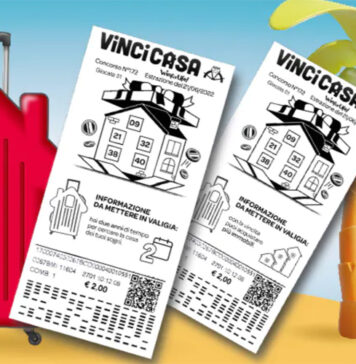
La European Commission will deal for the first time, and officially, with "microtransactions" and the payment of prizes in online games, as a possible practice similar to gioco d’azzardo and that it could generate addiction in which he has access to this type of video games.
With a particular eye on “loot box” , the European body is conducting an in-depth investigation to understand whether stricter regulations are needed.
“Loot boxes” have come under scrutiny after China launched a crackdown on the practice, particularly among minors. They are digital objects, “treasure chests”. in video games that players can purchase or earn , which contain a variety of virtual items, such as equipment, characters or power-ups. These boxes work similarly to a lottery, as players are unaware of the specific content they will receive until they are opened.
The team that takes care of digital and unfair practices of the European Commission is currently examining these types of microtransactions, since they involve random rewards. The results of their research will be published in a report expected in June 2024.
Loot boxes are seen by many as a form of real money digital gambling, as they rely on luck in determining prizes. Players purchase loot boxes to earn limited edition in-game items.
However, some loot, such as the package FIFA 23 FUT or packages NBA 2K24 MyTeam, are luck-based purchases with varying degrees of success. Often, players receive items they don't really need and are tempted to purchase more loot to try to win the game's biggest prizes.
In FIFA 23 coins, if you want to have a team composed of the best players, you will have to spend a good amount of money, or be very lucky .
Players have often complained that loot boxes, especially in sports games like FIFA and NBA 2K, make games “pay-to-win” for players who have money to spend on loot boxes.
Over the years, it has been extremely difficult to compete with players who spend money on loot boxes to acquire the best cards in games. Players who don't want to purchase loot boxes must dedicate countless hours to stay competitive in matches against other players online. Additionally, loot boxes generate some of the largest revenue for games like FIFA and NBA 2K.
THEXNUMX-XNUMX business days had previously attempted to classify loot boxes as games of chance due to the uncertainty-based rewards. However, regulation, as often happens, does not have a uniform character among member countries. The European Parliament has called for greater transparency from game developers about the probabilities of loot box mechanisms, including information in plain language about what the algorithms determine. . Parliament also underlined that the proposed legislation should consider whether an obligation to automatically disable in-game payments and loot box mechanisms or a ban on paid loot boxes should be proposed to protect minors, avoid fragmentation of the single market and ensure that consumers benefit from the same level of protection, regardless of their place of residence.
In the report, Parliament also referred to the findings of another study published by the Norwegian Consumer Council in May 2022, regarding the impact of loot boxes on the gaming industry, supported by 20 consumer organizations in 18 European countries. The almost sixty-page long report entitled “INSERT COIN: How the gaming Industry exploits Consumers Using Loot Boxes” highlighted problematic practices, including the exploitation of consumer cognitive biases and vulnerabilities through deceptive design and marketing, the use of virtual currencies to mask/distort real currency-worldwide monetary costs, and targeting of loot boxes and manipulative practices in towards minors. The report suggests actions the industry and regulators should consider to improve player protection, including banning deceptive practices, disabling all in-game purchases in real currency, banning loot box from games intended for minors and the increase in transparency on the algorithms that determine the outcome of a purchase. Finally, a ban on paid loot boxes has been proposed, in case other remedies do not reduce the problems.
Several countries, such asAustria, have taken measures to regulate these virtual chests and recently fined the company EA a sum of 10.800 euros for violating the laws on the use of these items.
Il Belgium it is among the countries that have adopted such a rigorous approach. In 2018 the Belgian Gaming Commission published a report arguing that all loot boxes purchased with real money constitute gambling, regardless of whether they are aimed at minors or adults. While the effectiveness of enforcing the loot box ban in that jurisdiction presents many challenges, several large companies have decided to remove loot boxes from the local versions of their games, or have refrained from publishing titles such as Blizzard Entertainment's Diablo Immortal.
Another country that has adopted an anti-loot box stance is the Netherlands, whose Gaming Authority published a study in 2018, which revealed that four of ten loot boxes examined were in violation of the law. According to the report, whenever the contents of loot boxes are determined by chance and the prizes can be traded outside of the game and therefore have a market value, offering these types of gambling games to Dutch consumers constitutes a form of gambling and is prohibited without a license. As a result, many companies have disabled the ability to transfer loot box rewards between players.
In July 2022, the government of UK has published its response to the loot box consultation. The call for evidence showed that loot box purchases can be linked to a range of harmful effects. In particular, there is strong evidence of an association with problem gambling. However, research has not established whether there is a causal relationship between loot box purchases and problem gambling, and there are a number of plausible explanations that could support this association. In response to the findings, the Government wants to see better protection for children, young people and adults and support better long-term research into the impact of video games. The government's view is that the purchase of loot boxes should not be available to all children unless and until permitted by their parents, just as all players should have access to transparent information and spending controls to support safe and responsible gaming. The Government has considered three types of responses that could be pursued, namely improving industry-led protections by gaming companies and platforms, making changes to the Gambling Act 2005 and strengthening other legal protective measures of consumers. Ultimately the government decided not to change the definition of gambling to include loot boxes. The response pointed out that loot box rewards usually have no real-world monetary value outside of the game.
In Germany The Unterhaltungssoftware Selbstkontrolle (“USK”), the German age rating body for video games, has expanded its testing criteria and will now include loot boxes, other in-game transactions and online chat features at within the “possible online risks” category when rating a game. The new rules went into effect on January 1, 2023. While loot boxes will not necessarily increase the age rating, the USK age rating labels will include information about additional features such as loot boxes, online shopping, and online chat features .
In Spain In 2022, the Spanish government's Ministry of Consumer Affairs published a draft law that would comprehensively regulate randomized reward mechanisms in video games, including loot boxes. The regulation would apply to loot boxes purchased with money or a virtual currency, where the player would be granted a reward that could be transferred between players or exchanged for money or virtual items. Among the prohibitions and obligations envisaged in the draft include: the prohibition of access to loot boxes by minors and the obligation to implement age verification which can be carried out through the use of biometric analysis systems; advertising restrictions, including the provision of loot box-related adverts in audiovisual media only between 1am and 5am; information obligations regarding chances of winning, conditions of participation and information on risks and safe use and implementation of self-exclusion mechanisms which would allow users to temporarily suspend the use of loot boxes for a period of 3 months to 5 years, without possibility to change it once set, as well as mechanisms that allow users to limit their spending for a period of 3 months. In case of failure to comply with the new law, the Authority will be able to impose fines of up to 3 million euros for the most serious violations, as well as suspend the service. This regulation has not yet entered into force.
In Poland Gambling law does not recognize randomized reward mechanisms used in interactive entertainment. Loot boxes should not fall under Polish regulation as virtual items do not constitute monetary or material prizes. Usually, such virtual content cannot be traded outside of a game and as a result you get real money in exchange, so in reality no money is earned even indirectly. Furthermore, it could be argued that such virtual content cannot be considered a material prize under the law, since it does not have any tangible form.
On the other hand, concern may arise from the fact that gambling law considers the possibility of starting another game or prolonging the current one as a material reward, even if in reality no monetary or material prizes are granted in the classic sense of the term. The law also provides that qualification as automatic games (or their digital equivalents) is possible even if the player is unable to win any cash or material prize but the game is organized for commercial purposes and involves an element of gambling. Further concerns may arise from the case law which is quite strict and seems to interpret the vague terms of the law quite broadly in cases involving classic slot machines or promotional lotteries.
Despite this, the Polish Ministry of Finance responded to a press inquiry in 2019 that loot boxes should not fall within the definition of any gambling under the Gambling Act. The mere existence of an element of randomness does not automatically cause a game to be considered gambling.










